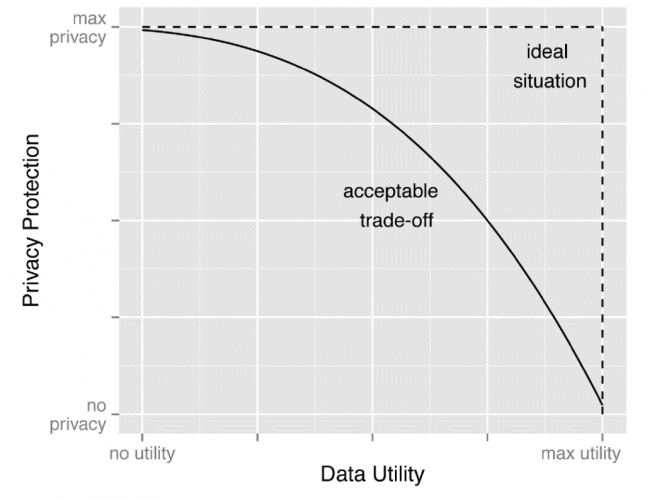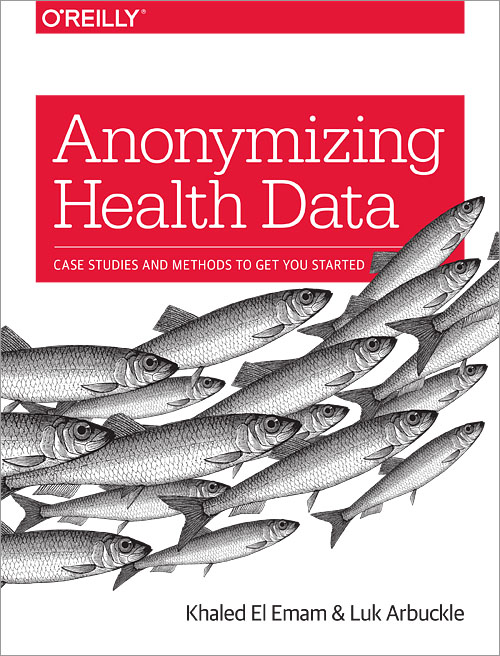Privacy Rights in the Digital Era was the headline theme for this event.
The Institute for Humane Studies co-sponsored the event with the Program on Economics & Privacy at George Mason University. This was a half-day seminar on January 3, 2019, in Atlanta, Georgia, preceding the American Economic Association Annual Meeting. Scholars and policy experts discussed “the growing debate regarding ownership of personal information when synced with an online service.” The goal: “To provide a greater understanding of the academy’s role in fostering privacy policies which are responsive to credible threats, but do not obstruct a wide range of research contributing to the benefit of consumers and industries alike.”
Privacy Analytics’ Chief Methodologist Luk Arbuckle was an invited speaker. He provides his insights.
What was the big idea?
“The discussions addressed the convergence of Big Data, Economic Growth, and New Consumer Privacy Regulations. The panel I was on, focused on evidence-driven versus theoretical approaches to evaluate different types of disclosure risk. The big idea was, ‘How do we explain risk’?
This idea provoked a number of questions. If zero risk does not exist, then how do we define what is ‘acceptable’ risk? How do we explain when and why it is acceptable? Why is it important to know in business terms, in legal terms and in ethical terms? Because each of these contexts changes the definition.”

Fig.1 Risk measurement:privacy vs. utility. Author, Luk Arbuckle, Privacy Analytics
Who was The Audience?
“The Institute for Humane Studies (IHS), founded in 1961 by Dr. F. A. “Baldy” Harper, a former economics professor at Cornell University, and now associated with George Mason University in Fairfax, Virginia, focuses on connecting scholars to opportunities to inform policy debates. The attendees were principally economists and lawyers from all over the United States. They are concerned with economics of privacy, given the impact of legislation such as GDPR and CCPA. Economists who use data may also be affected by changes in methodology as a residual effect of legislation.”
What value did Privacy Analytics bring to the event?

“As a speaker on the panel ‘Privacy Rights in the Digital Era’, I explored different options for de-identification of data. It’s all about finding the balance between utility and privacy, while being evidence-based. I was able to communicate the message of understanding the value of these different methods, and to reinforce Privacy Analytics’ position as a trusted advisor. Simply put, we will look at your use cases and flows, and tell you the pros and cons of the approaches you are considering for your organization.”
Luk Arbuckle
Co-author with Privacy Analytics' CEO Dr. Khaled El Emam of "Anonymizing Health Data: Case Studies and Methods to Get You Started" (O'Reilley Media, updated 2014)
Mr. Arbuckle was formerly Director of Technology Analysis at the Office of the Privacy Commissioner of Canada; Research Manager and Data Scientist at the Children’s hospital of Eastern Ontario (CHEO) Research Institute; and Director of Analytics at Privacy Analytics. He holds multiple graduate degrees and was awarded numerous scholarships and bursaries, including a Canada Graduate Scholarship doctoral award. He is a featured speaker at data privacy conferences worldwide, including MIT CDOIQ 2018 and the International Conference of Data Protection and Privacy Commissioners (ICDPPC) Brussels, Belgium.
For more on the data privacy and ethics debate, watch Luk Arbuckle’s Executive Conversation with global privacy expert Dr. Ann Cavoukian:
